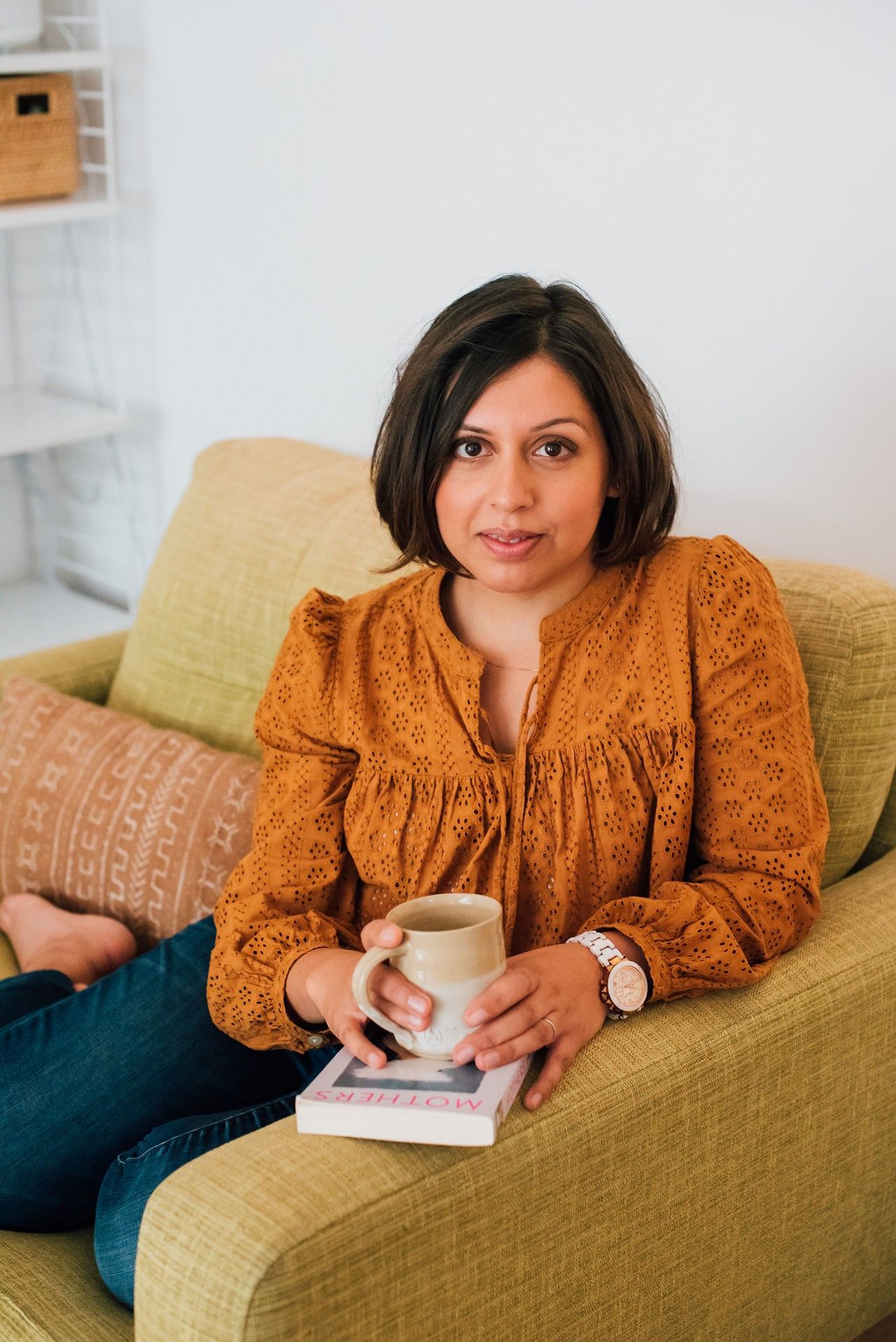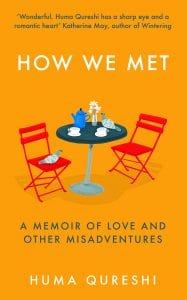- Tuesday, April 30, 2024

By: Manju Chandran
THE TALENTED AUTHOR DISCUSSES HER NEW BOOK AND CLOSE CONNECTION TO WRITING
by MITA MISTRY
WHETHER it was creating her own stories as a teenager, keeping secret diaries, working as a journalist or winning awards, Huma Qureshi has been connected to writing from a young age.
This close connection with words helped her make sense of the world and get a better understanding of herself, which all led towards the talented British author writing newly released book How We Met: A Memoir of Love and Other Misadventures. The memoir about family expectations, falling in love with someone from a different culture and following your own path is inspired by the author’s own life, and is already getting great reviews.
Eastern Eye caught up with Huma Qureshi to talk about her new book, writing, inspirations and future hopes.
What led you towards writing your book How We Met: A Memoir of Love and Other Misadventures?
How We Met is my own personal story. I never really intended to write a memoir, but I found myself reading a lot of memoirs by women. Though many of them moved me deeply, I struggled to find stories that connected with me completely, personal stories by women who happened to share my cultural background. I yearned to see a version of my story somewhere. I have also always loved love stories, and it hit me that if I was ever going to write my own memoir, then I wanted to write the story I had never read – of a woman of my background, falling in love. I wrote the story I had been missing my whole life. It all started there.

Tell us about the book?
How We Met is at first glance a love story, but it’s also much more than that. As the title suggests, it’s the story of how I met my husband. He happens to be white, but I always expected I’d meet someone who shared my Pakistani, Muslim background. The story takes the reader back and forth through time, to show how my husband and I got to where we are today. It’s about how I navigated my family’s expectations, but also my own expectations of myself. It’s a book about falling in love, family and culture, as well as growing up, grief, figuring out what you want from life and making choices on your own terms.
What was the biggest challenge of writing it?
The biggest challenge was writing honestly about private experiences, which involved my loved ones. Nobody’s family expects to have their private moments written about in a book, and yet, it’s what I went ahead and did! I spoke to my mother about it first because it mattered to me and she understood why I felt the need to write this book. My whole family was hugely supportive and though I was nervous about them reading the book, I was incredibly touched to hear how much it moved them and made them cry, as well as laugh with joy. The book is a memoir about your life, feelings, emotions and perspective.
Would you give an example of a personal experience that appeared in the book?
Well, the entire book is by its very nature personal, so it’s hard to pick just one thing out. But it centres on a very specific time of my life when I felt overwhelmed and lost, caught between grieving for my father, who had died in my early twenties, and also the expectation of marrying someone suitable (and wanting to be married) and how the weight of all that expectation made me feel.
Who are you hoping connects with your book?
I hope this story gives comfort to any woman who has found herself overwhelmed by the rishta process. We make fun of matchmaking aunties, but the whole thing can also be soul-destroying when, as a young unmarried woman, you are the one being held up to scrutiny. Many women who share my background have written to me to tell me what a relief and a joy it was to read my book and find themselves reflected in it, and this means a lot to me. Of course, it’s not just a book for Asian women; I think there’s so much in it, about growing up and being in that strange stage of life of early adulthood when you feel like you’re supposed to have everything sorted out, but don’t have a clue, that anyone of any background could, I hope, relate to.
Did you learn anything about yourself while writing the book?
While writing the book I did feel a great sadness for the girl I was in my twenties. I look back and feel like I wish she’d had someone to show her what to do, or how to be. My father died unexpectedly in my early twenties, and I don’t think I’d really stopped to connect the dots of just how his loss affected me in unobvious, subtle ways until I wrote it all down. I don’t think I realised how lonely I was until I found myself writing the book.
How does it feel before your book How We Met releases?
Excited and nervous! However, I do feel a certain sense of completeness with the book; I wrote what I needed and wanted to and now it’s out of my hands – I feel it’s ready to take its own path into the world. I hope it’s okay to say I also feel quietly proud of what I’ve achieved.
How does this book compare to other writing you have done?
As a journalist, I’d written about various moments or aspects of my life before, but I never thought my life was remotely interesting enough to fill a whole book. So, in that respect, this is the first time I’ve really written in such a deeply personal way about myself.
What kind of books do you enjoy and is there an all-time favourite?
I love books that deal with themes of family, love, relationships, and the tensions that pull us in different directions in our lives, and how we reconcile ourselves with the choices we make. It’s hard for me to pick out one favourite, but some books I loved last year include The Vanishing Half by Brit Bennett, Out of Touch by Haleh Agar, Burnt Sugar by Avni Doshi, Indelicacy by Amina Cain and Strange Flowers by Donal Ryan.
What can we expect next from you?
My debut collection of short stories, Things We Do Not Tell The People We Love will be published in November 2021. I’m also writing a novel which will be published after the short stories. All of this came about in 2020, so I’m also trying to catch my breath!
What inspires you as a writer?
I am inspired by small moments in life that are quiet and indiscernible and seem insignificant on the outside, and yet somehow shape us and our lives forever. I love exploring these tiny moments, because I find them so powerful. I am fascinated by unpicking our closest relationships, and how complicated we make them when they don’t necessarily need to be. This is what generally drives my fiction.
Why should the readers pick up your book How We Met: A Memoir of Love and Other Misadventures?
This last year has been impossibly hard, and we could all do with something uplifting in our lives. How We Met has been described as warm and hopeful, and now more than ever, it seems like we need stories of love and happy endings. I think How We Met offers that.